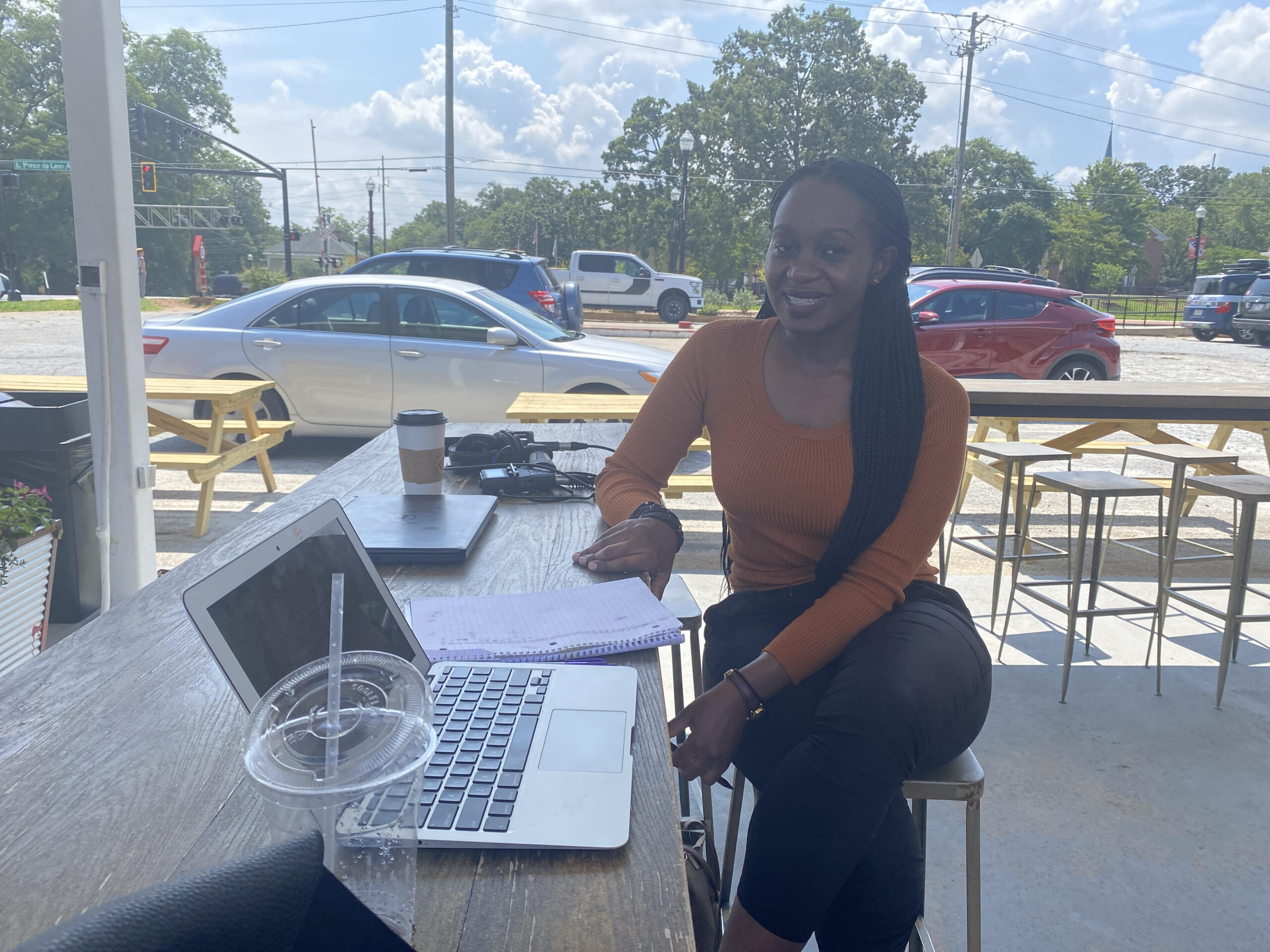‘Connect To Success’ Program Helps Young Resettled Refugees Navigate Work And School

Joy Muhoza, 22, at Refuge Coffee Co. in Clarkston, GA. She’s one of the first participants in the Connect to Success program.
Roxanne Scott / WABE
Joyeuse Muhoza already finished high school when she came to Georgia when she was 17 years old. Originally from the Democratic Republic of the Congo, she was ready to start life in a new country.
She didn’t expect her first job to be working in a chicken plant in north Georgia.
“You have to keep doing the same thing over and over again, which kind of hurts your body,” Muhoza says, now 22 years old.
She describes the temperature inside the plant as “winter all year-round.” Her commute was an hour-and-a-half each way and made about $11 per hour.
Ages 16 – 24 is a critical time for young people to transition into adulthood and into a career. But if young Georgians don’t get the support they need, they can miss out on an education and a chance to make more money. A program by a local resettlement agency helps make sure young newcomers can navigate work in a new country.
“We had a group of youth that were failing through the cracks,” says Sharita Khatiwada, program coordinator of Connect to Success. “They were not fully adults but not school-aged children.”
The program, started in 2016 by the Atlanta branch of the International Rescue Committee, provides one-on-one coaching to resettled refugees between 16 – 24 years old.
Connect to Success helps newcomers with everything from deciding which school to attend to getting transcripts from their previous country.
Barriers to young resettled refugees furthering their education, Khatiwada says, include lack of English language skills and difficulty balancing work and school in a new country.
Sometimes the barrier is bureaucracy.
For Muhoza, the program was instrumental in helping her enroll in a community college. Even though she’s fluent in English, she was told she would have to take English language courses and tests in order to attend. She was able to avoid the unnecessary classes with the help of a mentor advocating for her.
She says for another potential student, that requirement could have stopped them in their tracks of getting an education.
“Trying to prove that I’m actually good to be here, I’m fit to be in college,” Muhoza says, “that was very, very hectic.”
The program has helped about 300 people from countries such as Nepal, Rwanda and Syria.
Muhoza ultimately quit the chicken plant. She wanted to find a career where she could help people and not spend a lot of time in school. For her, nursing checked all of those boxes.
Now, she’s a patient care assistant at Emory University Hospital. Her plan is to get a bachelor’s degree to become a registered nurse.
Financially, her choice may ultimately pay off as well. According to the U.S. Bureau of Labor Statistics, the median wage of a registered nurse in Georgia is about $33. That’s triple what she made at her first job in the poultry plant.
“I think the rule of success is to get into it, work hard, get successful and train other people to be successful,” Muhoza says.
Muhoza now mentors people in the program. She wants to make sure young people like her don’t miss out on their chance to succeed.








